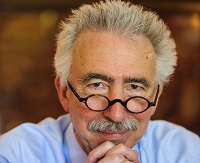
Discussions to hold scientists accountable must involve civil-society, policymakers, and regulators
COMMENT | Nicholas B. Dirks | From the growing presence of artificial intelligence in our daily lives to novel medical therapies, progress in science and technology affects us all – mostly in positive ways. But the pace of change brought by science can lead to bewilderment and fear, especially among those who have little familiarity with the culture of scientific research.
Scientific discovery is a complex process that often involves years of trial and error, as well as debates about statistical significance, causality, and other technical matters. It is this complexity that partly explains why science is not better understood by more individuals; it also partly explains why skepticism of science exploded to new heights.
Consider the conspiracy theories and anti-vaccine disinformation that proliferated during the COVID-19 pandemic. True, such developments also reflect growing distrust of government and institutions and acute political polarisation in many countries. But these problems feed on the meaty scientific skepticism and misapprehension that arise (especially) during what are arguably black swan events like COVID-19. Even trying to ascertain the degree of the dynamic is fraught, with firm measures hard to come by and not clearly correlating to vaccine or climate-change skepticism. A recent report from the Pew Research Center reveals that only 29% of adults in the US say they have a great deal of confidence in medical scientists to act in the best interests of the public, down from 40% towards the end of 2020.
Doubts about the legitimacy of science cannot be addressed without acknowledging that science has not always been used for good. From the Tuskegee syphilis study to the well-paid experts who attested to the safety of tobacco, history provides myriad examples of harm caused by those claiming the mantle of science. But these cases are not representative of the entire scientific enterprise. Most scientists do what they do because they are dedicated to advancing the frontier of human knowledge.
While the anti-vaccine movement long predates COVID-19, the pandemic breathed new life into it partly because scientists were trying to make sense of the SARS-CoV-2 virus and its impact publicly and in real time. The discovery that the virus could be transmitted by asymptomatic carriers and was mostly airborne marked a turning point.
Most people then rightly welcomed the arrival of lifesaving vaccines, which they saw as a testament to the scientific community’s agility, expertise, and social value. Though the new vaccines were delivered in record time, they also were merely the latest chapter in a long saga of miraculous breakthroughs dating back to the vaccines against smallpox and polio.
But now that a growing number of people have refrained from immunizing their children, polio and other preventable scourges have been making an alarming – albeit still limited – comeback. Odder still, many who have resisted COVID-19 vaccines have been willing to turn to untested, unfounded remedies. Unfortunately, this is what happens when people come to see all of science as a black box. When science-based recommendations evolve to account for new findings – including those that falsify earlier findings – the doubters see incompetence and cover-ups where they should see the scientific method at work.
In the face of new situations, it is standard practice for scientists to test their theories continuously and update their advice to reflect new facts. Even a broad consensus among the scientific community does not imply absolute certainty. Three years after the start of the pandemic, SARS-CoV-2 still has not revealed all its mysteries. Researchers continue to gather evidence on its mutations and lasting effects, including the phenomenon of “long COVID.”
From medicine and genetics to physics and technology, most scientific advances are the result of decades of hard, often tedious, work in laboratories. Progress is incremental, coming one experiment at a time. Clearly, this rigorous, methodical process needs to be better explained as part of a broader, ongoing conversation about the impact of science and technology on our lives and societies.
But better communication is not enough. Laboratory researchers, social scientists, and other leading thinkers must also engage in the ethical debates about scientific breakthroughs – from AI, gene-editing tools, and mRNA vaccines for viruses and cancer to nuclear fusion and new Alzheimer’s treatments – that could drastically change our daily experience.
Trust takes time to build, and often lags behind progress. It requires transparency and widespread participation from stakeholders across all levels of society. When the benefits of a scientific discovery are not widely shared, or when the risks are not fully disclosed and debated, trust can evaporate in a flash. Discussions about science and technology therefore must not be limited to scientists. Participation by civil-society groups, policymakers, and regulators is necessary to hold scientists accountable and ensure that discoveries are used for the public good, rather than for narrow interests.
At the New York Academy of Sciences, we have long joined efforts to make science more accessible and better understood. In the 1980s, we held one of the first conferences on AIDS. Today, we continue to bring together the brightest scientific minds for evidence- and research-based debates about the key issues of our time. In doing so, we always reach out to the wider public, with an eye toward bridging the knowledge gap.
Our task is not solely to communicate science better – though that certainly matters. Equally important is creating opportunities for participation in discussions about how science is conducted and about the social, cultural, political, and ethical implications of scientific discoveries. Building trust in science and combating misinformation requires viewing the public as part of the solution, rather than as a potential obstacle to overcome.
******

Nicholas B. Dirks, a former chancellor of the University of California, Berkeley, is President and CEO of the New York Academy of Sciences.
Copyright: Project Syndicate, 2023.
 The Independent Uganda: You get the Truth we Pay the Price
The Independent Uganda: You get the Truth we Pay the Price


